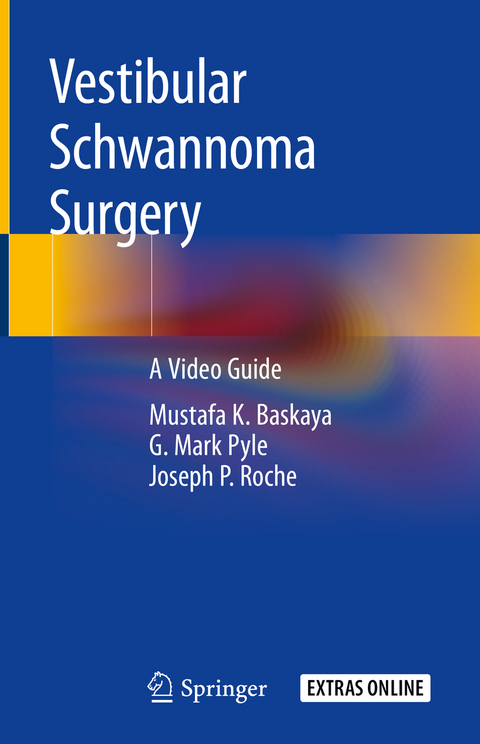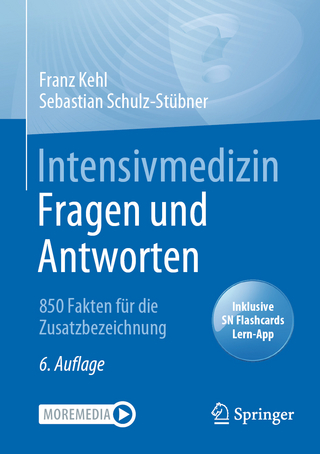
Vestibular Schwannoma Surgery
Springer International Publishing (Verlag)
978-3-319-99297-6 (ISBN)
This video guide increases the surgeon's understanding of all types of surgical approaches for vestibular schwannoma surgery: retrosigmoid, translabyrinthine, middle cranial fossa and combined approaches. 2D and 3D videos are included to increase the readers' understanding of these complex surgical techniques. These are accompanied by step-by-step narrated cadaveric dissection videos showing the crucial steps of each approach.
This book is a learning tool and video reference for those training to perform the procedure and enhances the readers understanding of neuroanatomy. A detailed review of all surgical options and their risks, along with tips, tenets and pitfalls is included. The authors provide an unbiased discussion of all options with balanced comparison between surgical approaches and algorithms for patient selection.
Dr. Mustafa K. Baskaya is the director of Skull Base Surgery Program at University of Wisconsin Hospital and a professor at the UW-School of Medicine & Public Health. Dr. Baskaya completed his neurosurgical trainings at both the Ankara University School of Medicine (1994), Turkey and University of Miami Medical School (2005), USA. He also completed fellowships in neurovascular and skull base surgeries at the Nagoya University, Japan and Louisiana State University. He has a strong and diverse background in both research and clinical care. He specializes in skull base and cerebrovascular surgery. His neuroanatomical research interests include microsurgical and microvascular techniques and finding the safest pathways for vascular lesions (brain aneurysm and AVMs) and brain tumors. Additionally, he maintains a laboratory that focuses on the microsurgical techniques to enhance residents and neurosurgery fellows surgical skills. He has published more than 150 manuscripts and serves as editorial board member in prominent neurosurgical journals. Currently he is the executive committee member of Congress of Neurological Surgeons, member of World Federation of Neurosurgical Societies Cerebrovascular Surgery Committee, Congress of Neurological Surgeons Annual Meeting Planning Committee, World Federation of Neurosurgical Societies Skull Base Committee. He has held various positions in Kentucky, Wisconsin, Louisiana and Florida, and is now Professor of Neurosurgery, Department of Neurological Surgery, and Director, Skull Base Surgery Program, University of Wisconsin, Madison. Dr. Pyle is board certified by the American Board of Otolaryngology-Head and Neck Surgery and the American Board of Neurotology. He specializes in otology, neurotology, and lateral skull base surgery. Specialty areas include: disorders of the ear, facial nerve and balance disorders, restoration of hearing and cochlear implantation, and skull base tumor surgery. Dr. Pyle completed his fellowship in Neurotology, Otology, and skull base surgery in 1991 and has over 25 years experience in skull base surgery. He is a Professor of Otolaryngology and Neurological Surgery and Vice Chair of the Division of Otolaryngology. He is Section Head of Otology and Neurotology. Research interests include treatment outcomes in Meniere’s Disease, hearing preservation in vestibular schwannoma surgery, embryologic development of the ear and vestibular rehabilitation. As Head of Otology, Neurotology, and Skull Base Surgery at the University of Wisconsin School of Medicine and Public Health he is the tertiary care neurotology provider for a patient population of 2.5 million. This active clinical and surgical practice involves seeing approximately 2500 patients per year with complex otologic and neurotologic disorders. He is Academic Vice Chair of the Division and with joint appointments in Surgery and Neurosurgery. He has mentored residents and faculty over the past 25 years. Dr. Roche is board certified by the American Board of Otolaryngology – Head and Neck Surgery and specializes in otololgy, neurotology & skull base surgery. Specialty areas include: diseases and orders of the ear, facial nerve, vestibular system, auditory system, hearing restoring and skull base surgery. He has a special focus on hearing preservation during skull base surgery and the surgical treatment of facial nerve disorders, such as Bell’s Palsy. Dr. Roche completed medical school at the Medical College of Wisconsin (2007), his residency in Otolaryngology at the University of North Carolina (2014) and fellowship in otology, neurotology, and skull base surgery at the University of Iowa (2016). Dr. Roche is an Assistant Professor of Otolaryngology in the Division of Otolaryngology. His research interests include outcomes research after cochlear implantation, cholesteatoma removal and skull base surgery. Additionally, he has an active interest in investigating the basic mechanisms of hearing loss in the peripheral and central auditory system with a specific interest in age related hearing loss.
Introduction.- Retrosigmoid approach.- Translabyrinthine approach.- Middle cranial fossa approach.- Combined approaches.
| Erscheinungsdatum | 08.12.2018 |
|---|---|
| Zusatzinfo | XI, 168 p. 148 illus., 125 illus. in color. With online files/update. |
| Verlagsort | Cham |
| Sprache | englisch |
| Maße | 155 x 235 mm |
| Gewicht | 426 g |
| Themenwelt | Medizinische Fachgebiete ► Chirurgie ► Neurochirurgie |
| Schlagworte | Acoustic neuroma • Middle cranial fossa approach • Retrosigmoid Approach • Translabyrinthine approach • vestibular schwannoma • vestibulocochlear nerve |
| ISBN-10 | 3-319-99297-X / 331999297X |
| ISBN-13 | 978-3-319-99297-6 / 9783319992976 |
| Zustand | Neuware |
| Informationen gemäß Produktsicherheitsverordnung (GPSR) | |
| Haben Sie eine Frage zum Produkt? |
aus dem Bereich


